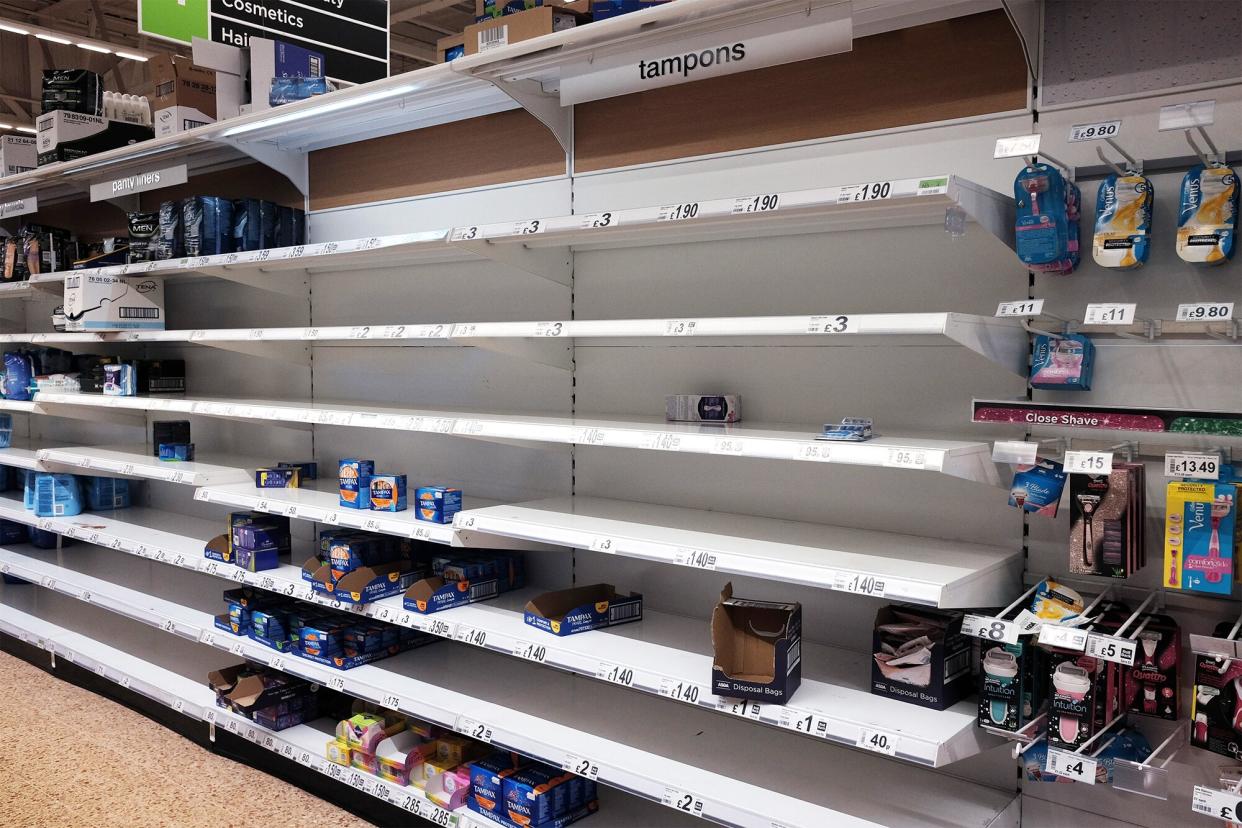National Tampon Shortage Is Affecting American Women — and No One Knows When It Will End

Yui Mok/PA Images/Getty
Tampons are hard to find.
Like baby formula in 2022 or toilet paper in 2020, the essential sanitary product is the latest casualty of the pandemic, increased demand and disrupted supply chains.
On social media, women are posting photos of empty drugstore shelves and saying they can't find tampons for miles and miles. They wonder if they will have to switch to other methods like pads or menstrual cups. Even Amy Schumer is being dragged into the conversation after being mentioned in an article as contributing to an increased demand of Tampax since she appeared in ads — in 2020.
What's behind all of this?
Tampax maker P&G spokeswoman Cheri McMaster told Time that "retail sales growth has exploded" since 2002. Demand is up 7.7% over the past two years, she said.
RELATED: Amy Schumer Jokes About Not Having a Uterus as She's 'Blamed' for National Tampon Shortage
The outlet also reported that P&G said in a recent earnings call that it was struggling with supply chain issues, including sourcing and transporting raw materials and and getting the products on trucks to retailers.
Other potential factors include staff shortages at particular manufacturing plants and increased cotton prices, likely due to the war in Ukraine, where much of the world's fertilizer is produced, affecting crops of all kinds.
RELATED VIDEO: First Lady Jill Biden Addresses Parents Amid Nationwide Formula Shortage in New PSA
CVS told USA Today it's trying to keep shelves stocked: "We're working with our suppliers to meet the current demand for feminine care products," spokesman Matt Blanchette said in a statement to the outlet. "In the event a local store experiences a temporary product shortage, our teams have a process in place to replenish supply."
RELATED: Baby Formula Shortage Should End in Late July After 'Gradual Improvement,' FDA Commissioner Says
Similarly, Target told USA Today, "We're working closely with manufacturers where product has been more limited to secure additional inventory," but that a "wide variety of sanitary products" are available in stores and online.
